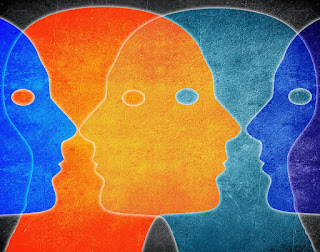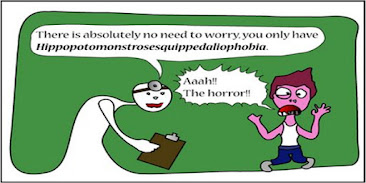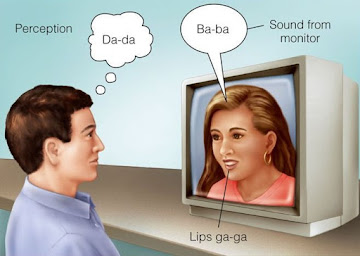Hello everyone. I am back with a bunch of whole new interesting information!!! 😃
Hope you all already did read "Some Unknown Psychological Syndromes" in my previous post. If you didn't, no worries, here is the link for you guys - https://psychedbloggers.blogspot.com/2020/09/some-unknown-psychological-syndrome.html
So here I am sharing again some more very rare psychological conditions with you all. I hope you guys find it interesting and informative. Stay tuned...:)Aboulomania Disorder : It is portrayed by "devastating hesitation" or as psychiatrists characterize it, "paralysis of will", related with anxiety, stress, discouragement and mental agony which are causing pathological indecisiveness. It can seriously affect a person's capacity to work in the public arena. It is frequently accepted that aboulomania is an immediate consequence of overinvolvement and intrusive behavior by their essential guardians in their formative years.
Allodoxaphobia : The rarest social phobia which exists is the "fear of opinions". This is known as "allodoxaphobia". It is derived from Greek word "allo" meaning "other" and "doxa" meaning "opinion". People experiencing this phobia are said to have had previous encounters of their opinion being rejected or they have not been able to express their opinion successfully. It is where an individual is fearful of other people's opinions.
Clinical Lycanthropy : It is one of the most uncommon mental disorder, described by the delusion that the individual can be or has just changed into a "wolf". The symptoms keep going somewhere in the range of 2 hours to decades and are apparently brought about by other brain ailments.
Folie à deux : It is also known as "shared psychotic disorder" (mostly observed among people who live in close proximity and in close relationships); a rare clinical syndrome. The term derived from French word "folie" meaning "madness, insanity". Its characteristic feature is transmission of delusions from "inducer" (primary patient) who is the "originally" ill patient and suffers from a psychotic disorder to another person who may share the inducer's delusions in entirety or in part. Depending on whether the delusions are shared among two, three, four, five and even twelve people, it's called as "folie à deux", "folie à trios", "folie à quatre", "folie à cinq", "folie à douze". Person with disorder requires treatment like antipsychotics, psychotherapy and family therapy.
Harm Obsessive Compulsive Disorder : It is a rare type of Obsessive Compulsive Disorder (OCD) in which a person has a constant fear that he or she will physically harm others and towards oneself. There are unwanted thoughts or aggressive obsessions of violence. Sometimes people can be fixated on the idea that they are causing harm or have already caused it.
Hippopotomonsterosesquippedaliophobia : This is known as "fear of long words". People who have this fear, feel anxious when they see or read long word. It can result from subjective experiences that are negative in nature. It is a rare type of phobia and roughly 10% people around the world suffers from it.
Mcgurk Effect : It is an illusion and it is also known as a "perceptual phenomenon". It shows the connection between hearing and seeing in speech perception. In this illusion, what is seen is overused by what one hears. Like if we see the mouth movements of someone while speaking, it can influence what we think that the persons is speaking. The effect gives an example of what happens when our senses conflict.
Psychogenic Purpura : It is also called as " Gardener-Diamond Disorder" or "Autoerythrocyte Sensitization Disorder". It is an uncommon condition described by unconstrained advancement of difficult edematous skin injuries advancing to ecchymosis (a discoloration of the skin resulting from bleeding underneath, typically caused by bruising) throughout the following 24 hours. Lot of stress and emotional trauma consistently precede the skin lesions.
Scrupulosity Obsessive Compulsive Disorder : It is a lesser known subset of OCD. A person suffering from it is obsessed with the issues and morals related to religion. There are extensive amount of thoughts related to good or bad or about committing sins. It is also known as "Religious Obsessive Compulsive Disorder".
Thalassophobia : It is the persistent and intense "fear of bodies of water" that seem dangerous and dark like the ocean. The term derived from the Greek word "thalassa" meaning "sea". People are not afraid of the water in itself but of the unknown that is present below the surface. It can negatively affect a person's quality of life and can lead to complete avoidance of large bodies of water.
That's all for now! Hope you enjoyed reading till here...😄
We will be back with more such interesting topics. Till then keep reading...
If you like our posts, please do follow our blog and feel free to ask any questions, feedback in the comment section. Thank you all for reading our posts and supporting us.😁
See you in the next post!
~ Mousumi Gayen










Good initiative.
ReplyDeletethank you.
ReplyDelete